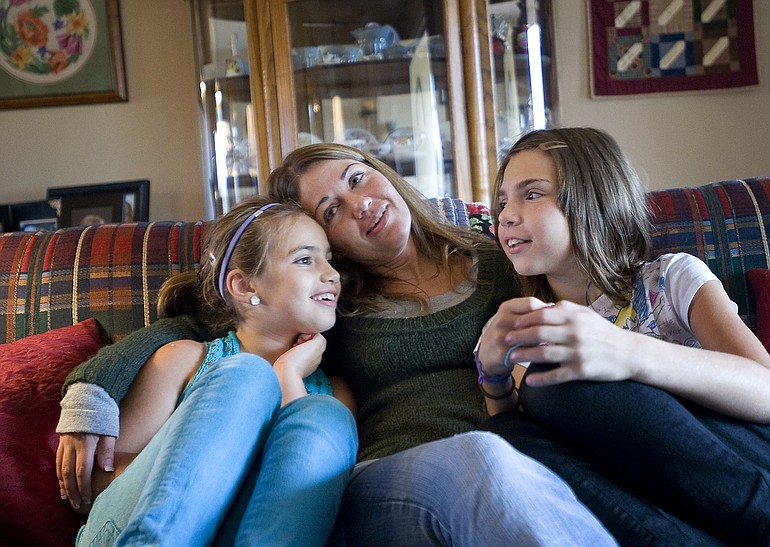Two local families who’ve lost battles with amyotrophic lateral sclerosis are battling on.
The Candilora family of Felida lost husband and father Toby, a corporal with the Washington County Sheriff’s Office. Candilora, who died last October at age 35, lived for nearly two years after his diagnosis of ALS — what’s commonly known as Lou Gehrig’s Disease.
And the Carrara family of Beaverton, Ore. and their co-workers at Vancouver’s Evergreen Memorial Gardens said farewell to Kathy Carrara, 51, who lasted only months past her diagnosis — from March to Sept. 12 of this year.
Friends and loved ones have formed walking teams to carry on the fight against ALS. Both teams will be participating in the Vancouver Walk to Defeat ALS, set for 11 a.m. Saturday in Esther Short Park. The sponsoring organization is the Oregon and Southwest Washington chapter of the ALS Association.
“The girls and I have continued to support the ALS Association in any way we can,” said Candilora’s widow, April, 35. “The equipment that they supply through their loan closet and the knowledge they share are priceless.”
The association provides support in any way it can — equipment loans and wheelchairs, family mentorship and support, respite care, advocacy and funding for the ALS Center at Providence Hospital. It also funds scientific research.
Amyotrophic lateral sclerosis is a progressive, degenerative disease that affects nerve cells in the brain and the spinal cord. In later stages, it can lead to paralysis as the brain’s ability to initiate and control muscle movement is lost. Most victims die of respiratory failure within a few years. There is no cure.
According to the ALS Association, there are roughly 500 people living with ALS in the Portland-Vancouver metropolitan area at any time. Although the diagnosis is grim, some people — like Toby — show a fighting spirit up until the end. He blazed a trail for the ALS Association’s first Vancouver walk in 2008 — raising $17,000.
“It is important to us to keep supporting this wonderful cause,” April said. “They did everything they could to make our lives as easy as possible through our difficult time.”
Carrara’s diagnosis was especially rare — because it was determined to be hereditary.
Several members of her family died of ALS, including her mother and brother, who died, respectively, two weeks and 10 months after diagnosis. It wasn’t a surprise when doctors told the Carraras that Kathy had ALS on March 19 — her birthday.
“I was supposed to go before her,” said Carrara’s widower, Ricco, 67. There was no time to get used to Kathy’s ever-changing condition. She needed a feeding tube in April, a walker in May and a wheelchair soon after that.
The disease made it hard for her to clear her throat. She had coughing fits that would last anywhere from 20 minutes to six hours. It’s different than other conditions such as muscular dystrophy because “your mind is there while your body is falling apart,” Carrara said.
Ricco was grateful for two of his grandchildren, who moved in to help him take care of Kathy, and Evergreen Memorial Gardens, where the two worked, for accommodating their situation.
After the diagnosis, Evergreen Memorial management allowed Ricco to come back from retirement and let Kathy continue selling prearrangements even though ALS limited her speech. Co-workers raised money and cooked meals for the family — and formed a walking team. But Kathy didn’t live long enough to see the walk take place.
“I guess the average life expectancy is two to four years” but she declined faster than that, said co-worker Lindsay Fisher, who’s recruited 19 walkers for the Evergreen team.
She believes the funeral home will walk to defeat ALS in future years, too.
To get involved in the Walk to Defeat ALS, visit http://webor.alsa.org. Peruse all the latest scientific findings on the way to understanding and curing the disease — ongoing work with stem cells, bone marrow, gene therapies and more. Or, call 800-681-9851.
“We sure miss our daddy each and every day,” wrote the Candilora girls, Taylore and Samantha, 11 and 9, in a letter to friends and supporters. “We don’t want any other kids to have to lose special people in their lives to this yucky disease.”




